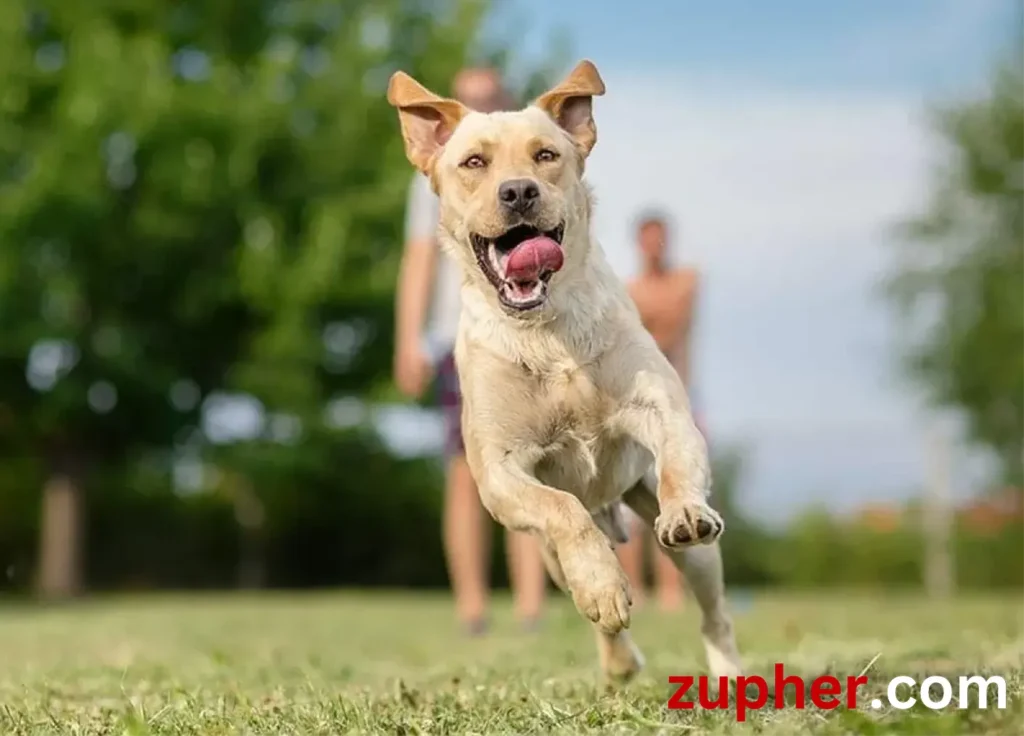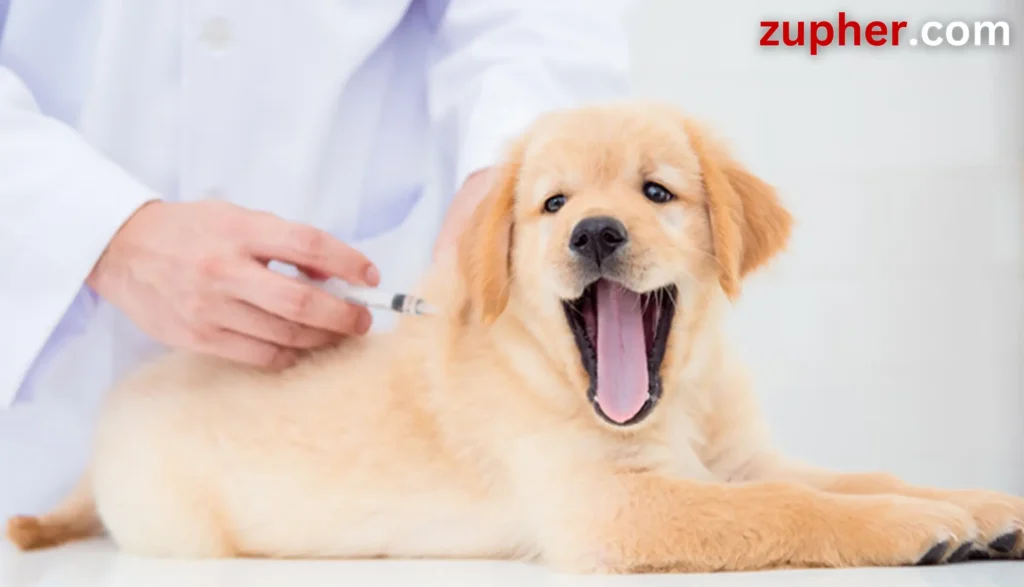What are the signs of a healthy dog?

Introduction
Recognizing signs of a healthy dog is super important for us pet owners. It helps us make sure our furry friends are feeling their best. In this article, we’ll explore the main signs to look out for to ensure our dogs are in good shape.
A. Brief Overview of the Importance
Knowing if your dog is healthy is like having a map to guide you on your pet parenting journey. It helps us catch any issues early and keeps our dogs happy and full of life.
B. Introduction to Main Topics
We’ll cover key signs like energy levels, appetite, coat condition, and bathroom habits. These clues can tell us a lot about our dog’s health and help us give them the best care possible. Let’s dive in!

Physical Indicators of Health
When we look at our furry friends, there are several signs we can check to make sure they’re healthy and happy.
A. Coat and Skin Condition
A dog’s fur can tell us a lot about their health. A shiny coat that feels smooth and soft is a good sign. We want to see fur without dry patches, flakes, or too much oiliness.
B. Healthy Weight
Just like humans, dogs need to maintain a healthy weight to stay in good shape. We can tell if a dog is at a healthy weight by feeling their ribs and seeing if they have a good amount of muscle without bones sticking out.
C. Bright Eyes and Clear Ears
Eyes that are bright and shiny indicate a healthy pup. We also want to check their ears – they should be clean and free from any redness or gunk.
D. Strong Teeth and Gums
Healthy teeth and gums are essential for a dog’s overall well-being. Look for teeth that are clean and gums that are pink, not swollen or bleeding. And, of course, no stinky breath!

Behavioral Signs of Health
Understanding your dog’s behavior is another crucial aspect of keeping them healthy and happy.
A. Normal Activity Levels
Healthy dogs love to play and exercise regularly. They enjoy activities like fetching a ball or going for walks. If your dog seems unusually tired or lazy, it might be a sign that something’s not right.
B. Good Appetite and Digestion
A healthy dog will have a consistent appetite and eating habits. They’ll eagerly chow down on their meals and have regular, well-formed bowel movements. If you notice diarrhea or constipation, it could indicate a problem.
C. Social Interaction
Dogs are social creatures and should enjoy interacting with both humans and other animals. They’ll happily wag their tails and seek out attention. If your dog becomes aggressive or seems overly shy, it could be a sign of stress or illness.

Routine Veterinary Care
Taking your dog to the vet regularly is like giving them a superhero check-up to keep them strong and healthy.
A. Regular Vaccinations and Preventive Medications
Just like how we get shots to stay healthy, dogs need vaccinations too. These shots protect them from getting sick from nasty diseases. We don’t want any unwanted guests like fleas, ticks, or worms hitching a ride on our furry pals, so preventive medications help keep those pests away.
B. Annual Check-ups
Imagine if we only went to the doctor when we felt sick! That wouldn’t be good. Regular visits to the vet help catch any problems early before they get serious. The vet will give our dogs a thorough check-up to make sure everything’s A-OK and might even do some tests to make sure there are no hidden issues.

Environmental Factors
Our dog’s surroundings play a big role in keeping them healthy and happy.
A. Clean Living Environment
Just like how we feel better in a clean room, dogs thrive in a tidy space too. Regular cleaning and grooming help keep them free from dirt and germs. It’s like giving them a fresh start every day!
B. Proper Nutrition
Think of food as fuel for our furry friends. They need a balanced diet tailored to their age and breed to stay strong and energetic. And just like how we need water to stay hydrated, dogs need access to fresh water all the time to quench their thirst.
Conclusion
In wrapping up, let’s review what we’ve learned about keeping our furry pals in tip-top shape.
A. Recap of Key Indicators
Remember, a shiny coat, bright eyes, and playful behavior are signs of a healthy dog. Regular vet check-ups and vaccinations, along with a clean living space and nutritious food, also contribute to their well-being.
B. Importance of Attentive Care
Giving our dogs love and attention isn’t just about belly rubs – it’s about keeping a close eye on their health. By paying attention to their behavior and physical signs, we can catch any issues early and ensure they live their best lives.
C. Encouragement to Seek Veterinary Advice
When in doubt, it’s always best to seek advice from the experts – veterinarians! They’re like doctors but for our furry friends. If you notice anything unusual or concerning about your dog’s health, don’t hesitate to reach out to your vet for guidance and support.
People also ask
How do I know if my dog is healthy?
Look for signs like a shiny coat, bright eyes, and active behavior.
What signs indicate a healthy dog?
A healthy dog has good energy levels, a normal appetite, and regular bowel movements.
How can I determine if my dog is in good condition?
Regular vet check-ups and attentive care can help ensure your dog’s well-being.
What is a healthy behavior for a dog?
Normal activity levels, social interaction, and a good appetite are signs of a healthy dog.
How do dogs act when they are sick?
They may show signs like lethargy, loss of appetite, vomiting, or diarrhea.
Is my dog healthy and happy?
If your dog shows signs of good health, like playfulness and affection, they’re likely healthy and happy.



